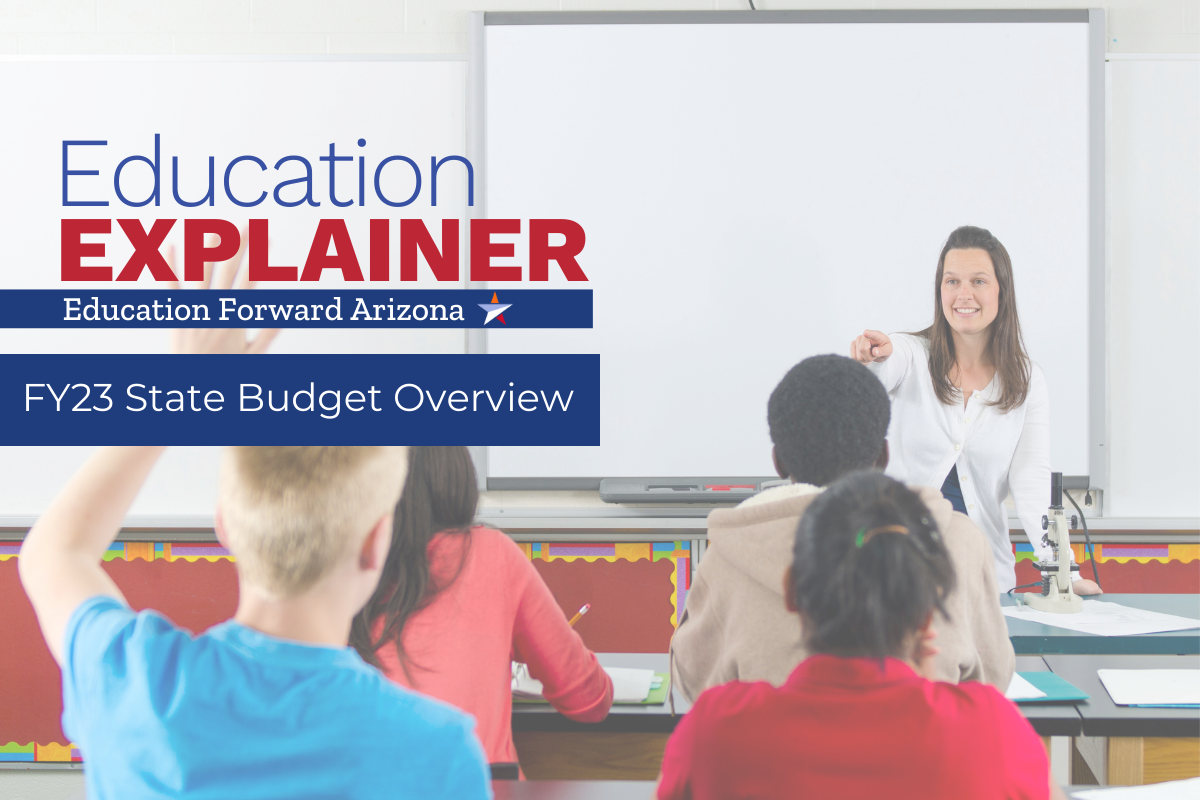
FY23 Budget Overview
While we were pleased to see a bipartisan budget that includes much-needed investments in K-12 education and resources to support students from low-income families and students with disabilities, we were disappointed that a long-term P-20 solution to education funding was not addressed. Additionally, and most concerning, was that the legislature also passed universal Empowerment Scholarship Accounts (HB2853). The bill allows every student in the state to access a voucher, which we have consistently opposed. Read more about our concerns with universal ESA expansion.
Related to our priorities, the budget includes:
- Funding for an opportunity weight to provide additional resources for schools serving low-income students: $50 million this year, $25 million next year and $25 million the year after for a total of $100 million
- $100 million for students with disabilities
- Increases to the base level of 2% for inflation and an additional 6.8% increase which does not include the 1.25% cut for teacher compensation for district schools. This funding can be used flexibly by schools and could be used to support things like teacher pay, teacher and staff retention or full-day Kindergarten.
- $12.5 million to expand the Arizona Promise Program, which is a scholarship program for low-income students created to increase access and affordability of a postsecondary education managed by the Arizona Board of Regents (ABOR)
- $5 million for a partnership between ABOR and Northern Arizona University (NAU) in Yuma
- $10.8 million in STEM workforce funding for Maricopa, Pima and Pinal Community Colleges
- $7 million for rural community colleges
- $16.6 million and $250,000 to create adult education and workforce development programs (via HB2122)
The budget did not address the Aggregate Expenditure Limit, which means that it will need to be addressed by the legislature at a future time.
Additionally, the budget includes the following for education:
K-12
- $60 million for District Additional Assistance and Charter Additional Assistance
- $50 million for school safety/school counselors
- Eliminates state equalization aid. This is a $337 million tax cut that now will be paid out of the general fund
- $10 million for foster youth transitional housing
- $5 million for the ADE Office of Indian Education
- $7.2 million for the school finance data system (ADOA)
- $1.07 million for the State Board for Charter Schools (IT upgrade, 5 staff)
- $1 million to create the Code Writers initiative grant program
- $1 million to create the Invest in Postsecondary Success program
- $850,000 for a statewide gifted assessment
- $183 million for school facilities (ADOA)
- $100,000 for ADE for childhood trauma and awareness grants
- Increases transportation support level per route mile
- Allows school districts to adopt a budget following the legislature’s passage of the budget
- Creates an Empowerment Scholarship Account (ESA) parent oversight committee
Community Colleges
- $6.25 million to support the First Responder Academy
ABOR
- $60 million to the University of Arizona (UA)
- $54 million to Arizona State University (ASU)
- $26 million to NAU
- $10 million to establish the Spouses of Military Veterans Tuition Scholarship Fund that is administered by ABOR
Thank you!
There’s more work to do to support P-20 education to meet the goals in the Arizona Education Progress Meter and Achieve60AZ goal, but for now, we are grateful for the collaborative and bipartisan effort that got us here today.
Many of you joined with advocates and partners across the state to ask for increased funding for P-20 education over the past few months. Thank you for making education funding a priority and for contacting your legislators.
We’d also like to share our appreciation and gratitude to the P-20 education partners who are at the Capitol fighting the good fight, many of whom have been building support for these issues (including an opportunity weight and special education funding among others) for years.
